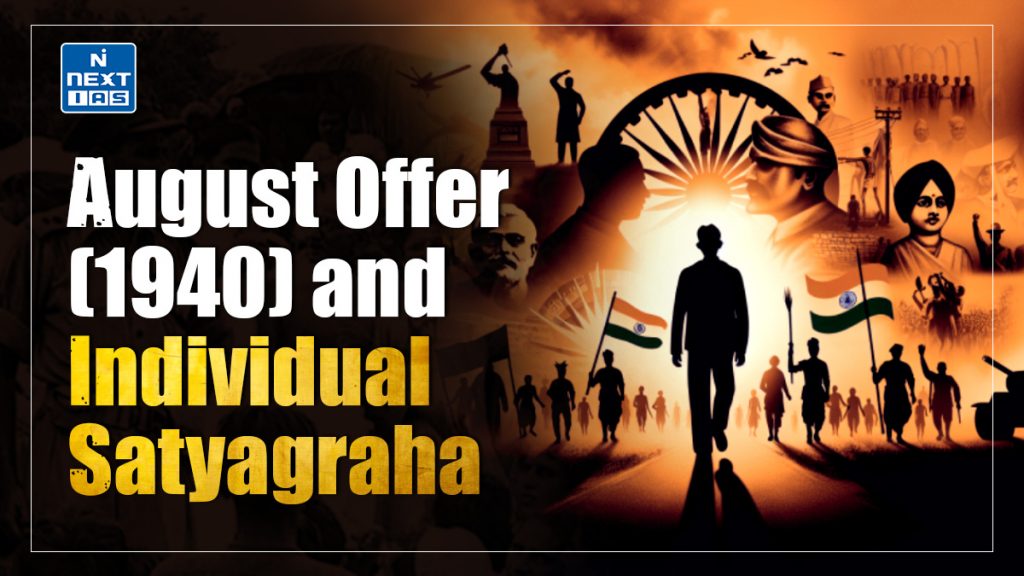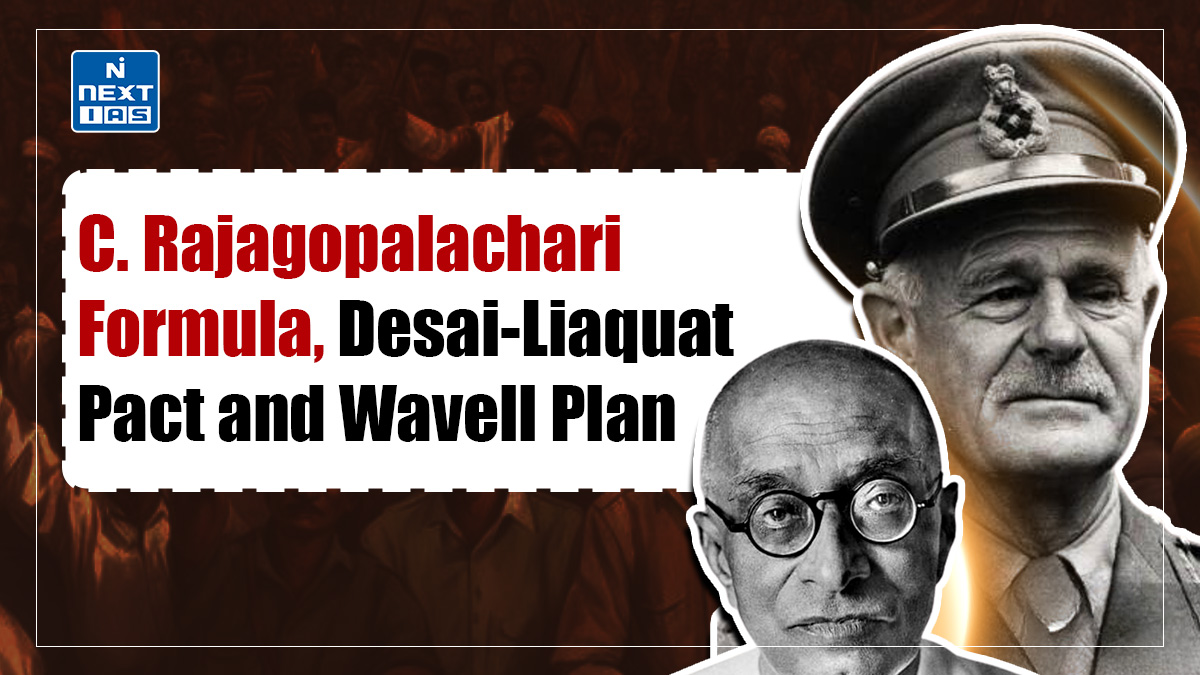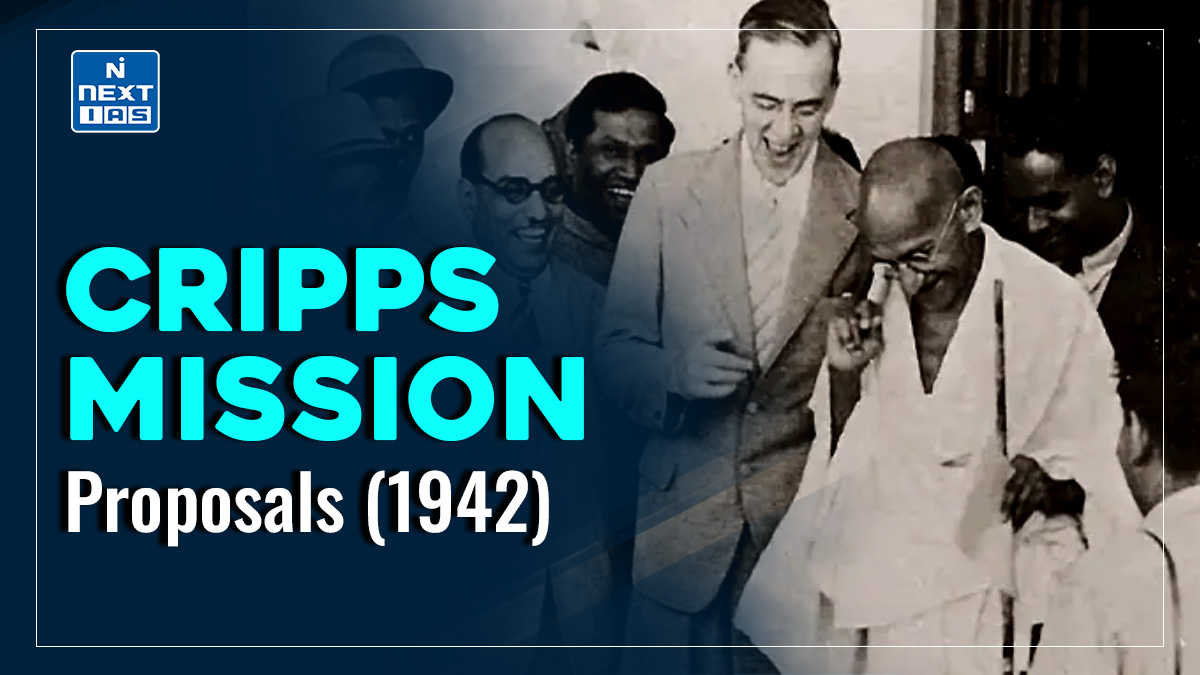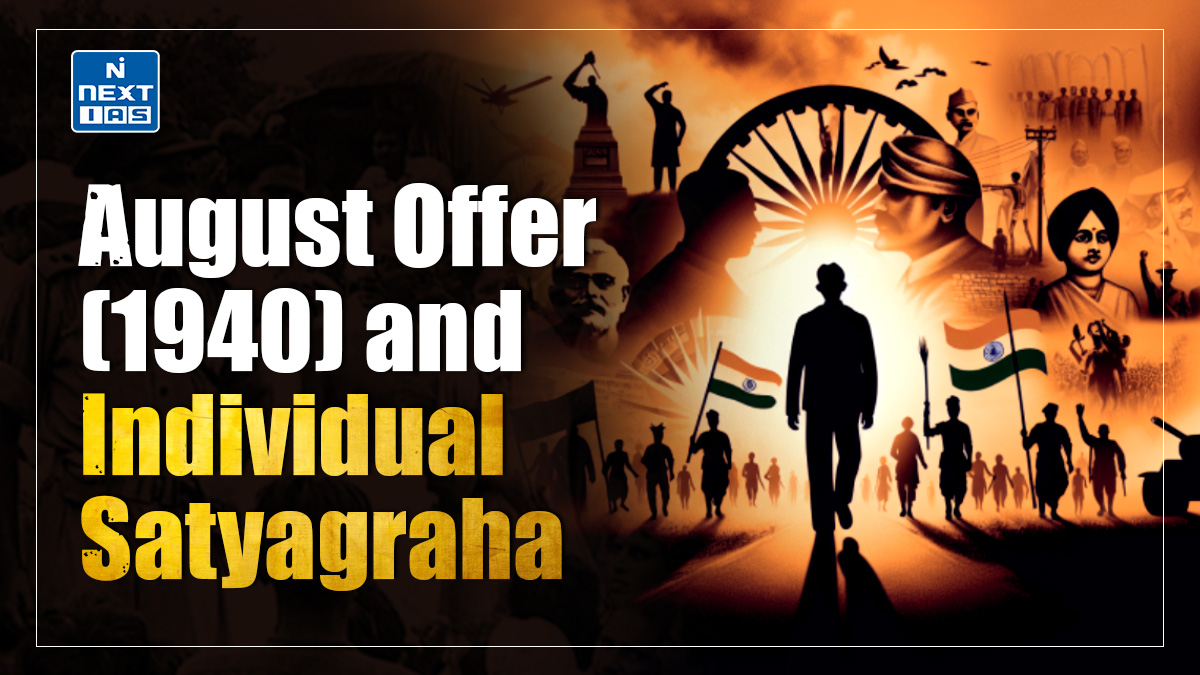
The August Offer of 1940 was a British proposal that aimed to secure Indian support for World War II by promising Dominion Status and constitutional reforms, but it failed to meet nationalist aspirations. The subsequent Individual Satyagraha, launched by Gandhi, highlighted India’s opposition to British war efforts without national consent, showcasing a disciplined and non-violent resistance. This article aims to study in detail August Offer and Individual Satyagraha, their context, key features, and impact on India’s freedom struggle.
About August Offer and Individual Satyagraha
- The Second World War brought significant challenges for the British Empire, compelling them to seek Indian support for their war efforts.
- Against this backdrop, the British government made a policy announcement on 8 August 1940, known as the August Offer.
- Despite its promises, the offer was met with strong opposition from Indian nationalists, leading to Mahatma Gandhi’s launch of the Individual Satyagraha in response to the ongoing political stalemate.
The August Offer (1940)
- Advisory Council: It establishes the advisory council, which includes Indian members, to ensure greater Indian participation in governance.
- Dominion Status: It was declared that Dominion Status was India’s ultimate goal.
- Constitutional Reforms: Post-war, a body predominantly comprising Indian representatives would be constituted to draft India’s constitution.
- Representation in the Executive Council: An increase in the number of Indian members in the Viceroy’s Executive Council.
- Minority Rights: It assured that no future constitution would be adopted without securing the consent of minorities.
Indian Response to the August Offer (1940)
The Congress rejected the offer outright, viewing it as an inadequate and delayed attempt to address Indian aspirations.
- Jawaharlal Nehru criticised the proposal, famously stating, “Dominion status is dead as a doornail.”
- Mahatma Gandhi expressed disappointment, remarking that the declaration only widened the gulf between Indian nationalists and the British Empire.
The Congress’s primary demands for complete independence and establishing a provisional national government remained unfulfilled. This rejection laid the foundation for further non-violent resistance, culminating in the launch of Individual Satyagraha.
Individual Satyagraha (1940–1941)
The failure of the August Offer to address the nationalist demand for greater autonomy and the denial of the right to oppose British war efforts prompted Gandhi to initiate the Individual Satyagraha. Unlike previous mass movements, this was a carefully controlled protest designed to:
- Assert the Indian people’s right to free speech.
- Highlight the difference between India’s struggle against colonial autocracy and the global war against Nazism.
- Demonstrate India’s opposition to British involvement in the war without the consent of Indian leaders.
Features of Individual Satyagraha
- Selective Participation: Gandhi selected disciplined and non-violent volunteers to act as Satyagrahis.
- Non-Violence: Satyagrahis adhered strictly to non-violent principles, promoting harmony and tolerance.
- Freedom of Speech: The Satyagrahis made public declarations opposing India’s forced participation in the war and marched toward Delhi as part of the Delhi Chalo Movement.
Key Participants in Individual Satyagraha
- Acharya Vinoba Bhave: The first Satyagrahi imprisoned for his statements against the war.
- Jawaharlal Nehru: The second Satyagrahi, followed by thousands of others, including prominent Congress leaders.
By May 1941, over 25,000 individuals were arrested for participating in the Individual Satyagraha.
Impact of Individual Satyagraha
- It demonstrated the Indian masses’ continued unity and resolve against colonial rule.
- The movement maintained non-violent discipline, avoiding the aggressive outcomes of earlier campaigns.
- Its limited but symbolic success forced the British to initiate negotiations, culminating in the arrival of the Cripps Mission in 1942.
- It exposed the British government’s inability to secure full Indian cooperation without addressing the demand for self-rule.
Evaluation of August Offer and Individual Satyagraha
- For the first time, the British acknowledged Indians’ right to frame their constitution and explicitly offered Dominion Status as a goal.
- The vague promises and lack of immediate action failed to satisfy Indian aspirations, further alienating nationalists.
- It was a strategic move to maintain the nationalist struggle when mass movements were untenable.
- Though limited in scope, it kept the spirit of resistance alive and demonstrated India’s strong opposition to British policies.
- The August Offer and the subsequent Individual Satyagraha symbolised the evolving political dynamics in India, setting the stage for more decisive action, including the Quit India Movement in 1942.
Conclusion
The August Offer and Individual Satyagraha represent critical phases in India’s struggle for independence, showcasing the resilience and strategic adaptability of the Indian nationalist movement. While the August Offer symbolised Indian aspirations, its inadequacy reaffirmed the need for continued resistance against colonial rule. Despite its limited scope, the Individual Satyagraha served as a testament to India’s unyielding resolve and non-violent principles. These events not only exposed the British government’s inability to reconcile with nationalist demands but also set the stage for more assertive actions, culminating in the Quit India Movement of 1942, which intensified the final push for India’s independence.
Frequently Asked Questions (FAQs)
What was the August Offer 1940?
The August Offer of 1940 was a proposal made by the British government during World War II to gain Indian support for the war effort. It promised to expand the Executive Council of the Viceroy, include more Indians in governance, and consider granting Dominion Status to India after the war.
What proposal was made in the August Offer of 1940?
The August Offer proposed that a representative body would be formed after the war to frame a new constitution. It also assured minority interests of consideration, and Dominion Status was acknowledged as a potential future goal for India.





